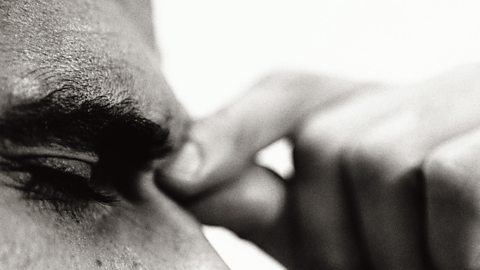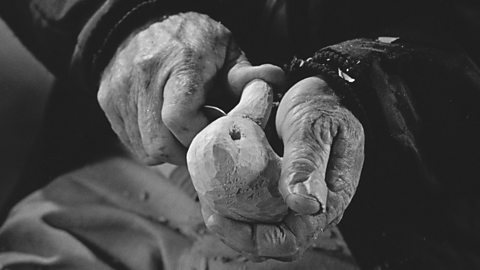Duror
Duror is the antagonist of the novel. He is an embittered and unhappy man and is married to the ill and obese Peggy, for whom he only feels disgust. He is constantly berated by his mother-in-law for his growing detachment from his wife.
DurorÔÇÖs only solace is to escape to the woods in which he is gamekeeper. However, his torment intensifies as the presence of the cone-gatherers in their hut causes him to experience a hatred so intense that it drives him to madness and, ultimately, his own demise.
It is difficult to feel sympathy for Duror who comes to represent evil in the novel. His relentless pursuit of Calum, who symbolises goodness, leads him into a dark world of deceit, corruption and insanity.
His only way out of this torment is to murder Calum, the cause of his hate, before taking his own life.
Duror's motivations
Duror has a burden to carry
. Having been rejected from the army, he is forced to stay at home, working on the estate, living with his mother-in-law and a wife he considers to be grotesque
.

It is clear Duror's sexuality is suppressed by such a circumstance, and we see him attracted to Effie, the housekeeper, and then Lady Runice-Campbell herself, who symbolises an elite beauty unattainable to him.
DurorÔÇÖs revulsion for deformity has grown over the years, and the arrival of the cone-gatherers brings it to a crisis point. After the deer hunt, Duror understands why he harbours such hatred for Calum:
For many years his life had been stunted, misshapen, obscene, and hideous; and this misbegotten creature was its personification.
The words misshapen, obscene
remind us of Peggy and her wobbling masses
of pallid fat
while stunted
refers to DurorÔÇÖs potential in life as a soldier and as a husband cut off and prevented from growth.
Thus Calum and his hunchbacked
form come to embody all that is ugly in DurorÔÇÖs life, so he begins a quest to rid himself of such imperfection.
Duror's madness
We first encounter Duror watching the cone-gatherers from a hiding place in the wood. He is alone in his hatred of Calum, so there is no one to prevent this obsession taking over him.

He follows the brothers to their hut and stands vigil, seething as he watches Calum skilfully carving a squirrel from a piece of wood.
We even learn that he profoundly approved
of Hitler's final solution, as it meant destroying such a creature
as Calum.
When Duror's self-control and composure begin to weaken, his appearance becomes more dishevelled, and his composed speech turns into almost incoherent muttering.
The only grounding influence on Duror is the presence of his dogs, whose unswerving loyalty keeps his anger in check. Significantly, when Duror murders Calum before taking his own life, he does so without his dogs, implying itÔÇÖs too late
to return to sanity and reason.